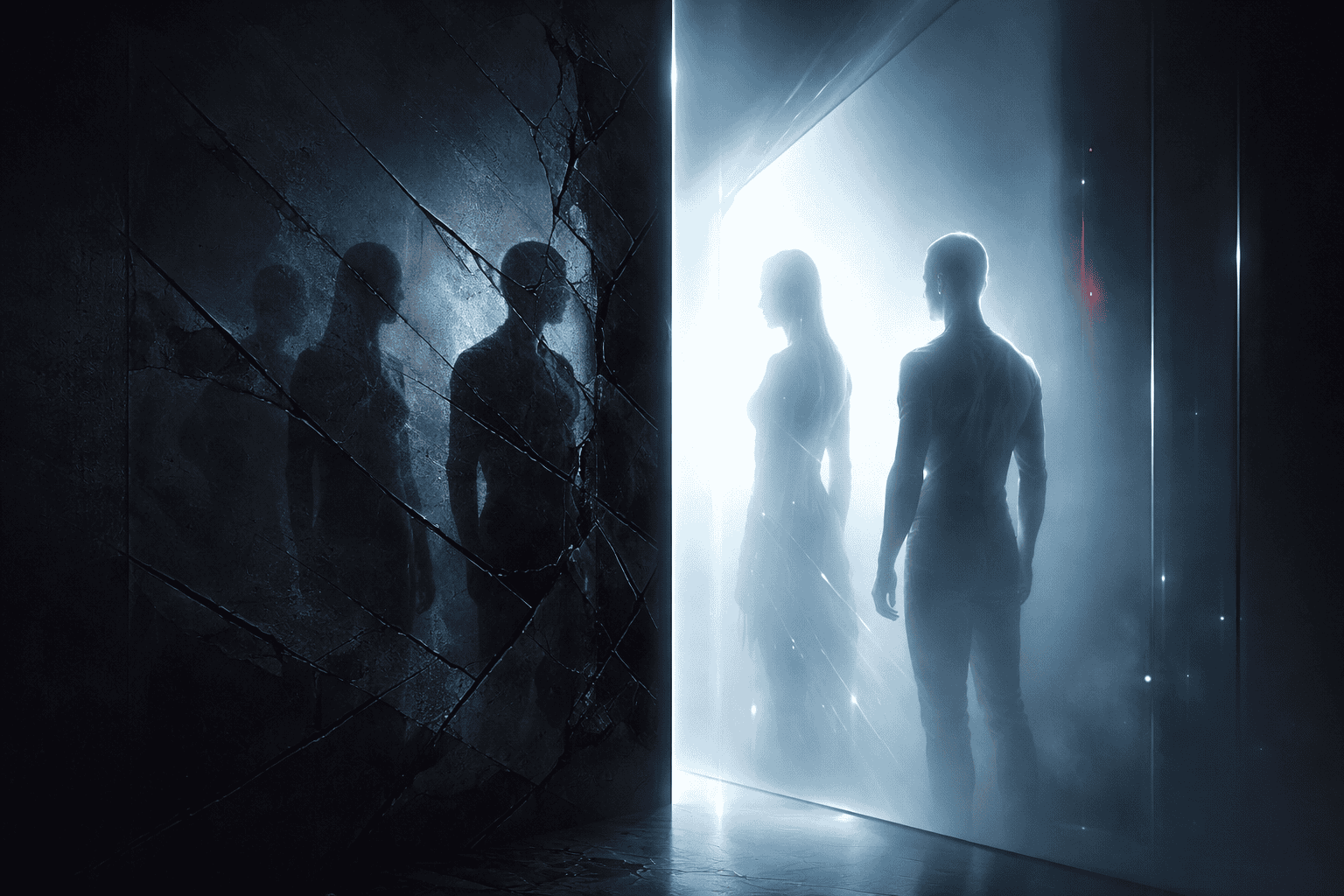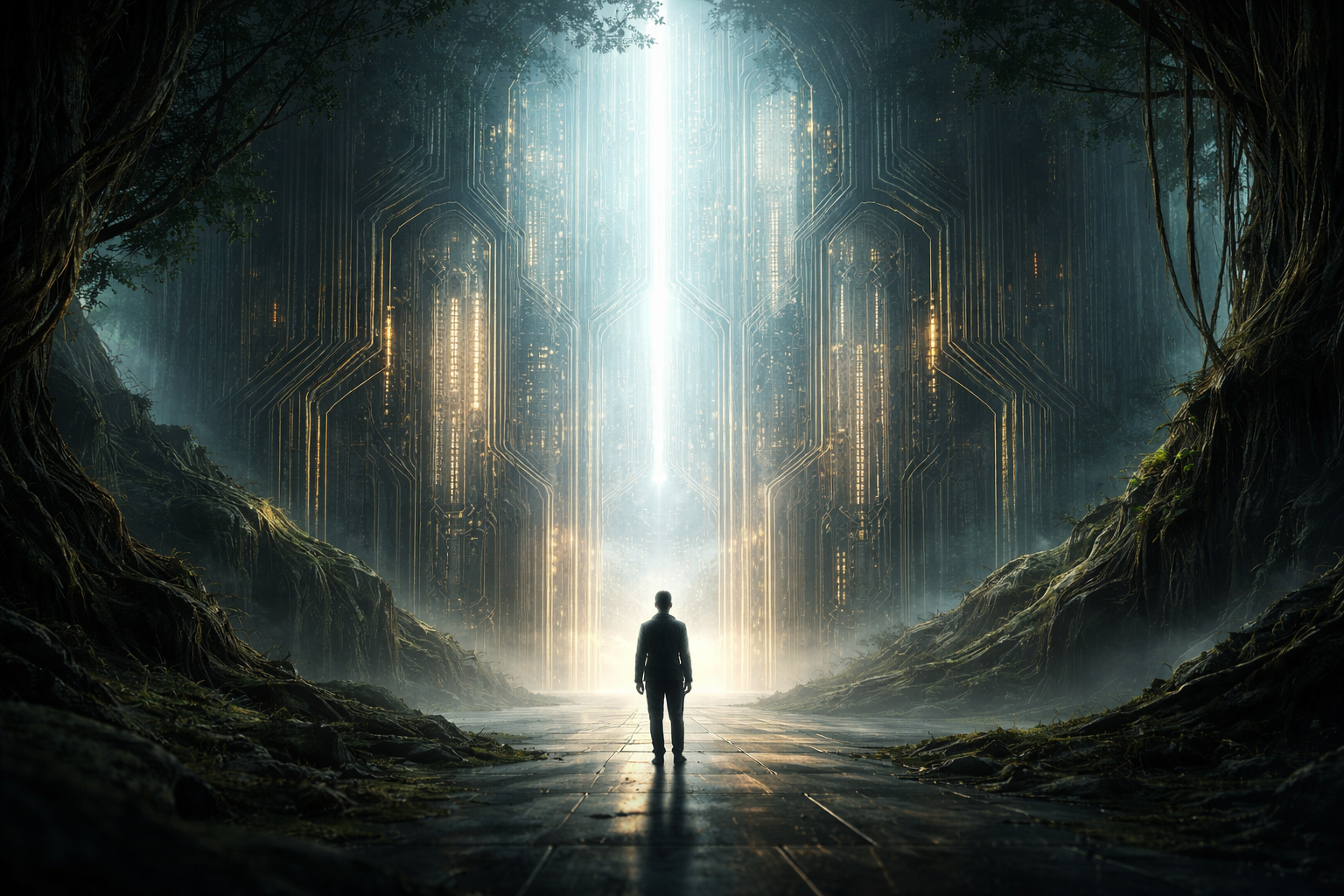The persistence of cosmological arguments tells us less about the nature of the world than about the psychological and epistemic traps we continue to fall into. When inquiry collapses into belief, and belief hardens into identity, truth is no longer sought — it is defended. What follows is not an attempt to replace one story with a better one, nor to rehabilitate myth under a more fashionable guise. It is an effort to keep the process alive, to resist premature certainty, and to examine how meaning, perception, and power intertwine long before geometry ever enters the conversation.
Tag: discernment
We often ask what life would look like if humanity awakened. The problem isn’t the question itself, but the assumption that we could recognize the answer from within our current condition. Whatever such a world might be, it would not resemble our fantasies, myths, or technologies. It would demand something far more unsettling: presence without projection.




